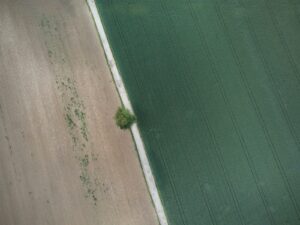As Southern Water joins a growing list of English suppliers introducing hosepipe bans due to a hot and dry summer, the Scottish Environment Protection Agency issues its own warning.
With the country recently enduring another spell of particularly high temperatures, water scarcity is becoming a very real threat to Scotland. Regions in the east are particularly badly affected.
Low groundwater and prolonged dry conditions are contributing to the emerging issue, with the Scottish Environment Protection Agency [SEPA] announcing restrictions on license to abstract water from the environment may soon be necessary.
The first half of 2025 has been eastern Scotland’s driest since 1973, with much of the region now ranked as suffering from Moderate Scarcity for more than two months. Intermittent rainfall in recent weeks has not been enough to combat this, and above average rainfall — which can in turn raise the threat of flash flooding — is required to stabilise conditions.
Below average snow accumulation and groundwater recharge, stretching back to last winter, has also contributed to the situation. Many rivers experience no recharge in spring, when snow-capped mountains and hillsides traditionally melt – a process which is vital for water levels to be constant throughout the year. The districts of Spey, Devon, Ythan, Don (Aberdeenshire), Dee (Aberdeen), Esk, the Firth of Tay and Tyne (Lothian) are all considered Modern Scarcity now. Findhorn, Firth of Forth, and Almond are on alert.
‘SEPA’s decisions are guided by science and data, and our DRAT station monitoring plays a critical role in our ability to respond quickly fairly and proportionately. We’ve seen how abstractors have responded to the challenge of water scarcity this year and took early action to reduce pressure. However, the risk of required restrictions is not over,’ said Eilidh Johnston, SEPA’s Senior Manager in Water Industry and Rural Economy.
‘It won’t take a heat wave to tip rivers into crisis. Sustained low flows and dry soils are already putting pressure on businesses and the environment,’ Johnston continued. ‘We’re asking all abstractors to stay aware of conditions and check the local direct station data regularly especially in the east where pressure is building. We’re already in touch with those at highest risk of restrictions, but if you have any questions please get in touch.’
Image: Seema Miah / Unsplash
More on Climate Change, Biodiversity, Nature and Sustainability:
Wychavon District Council celebrates restoration win in just 5 weeks
Local authorities must do more to engage with public on climate
5000 people meet 300 MPs in Parliament, with these climate demands


















